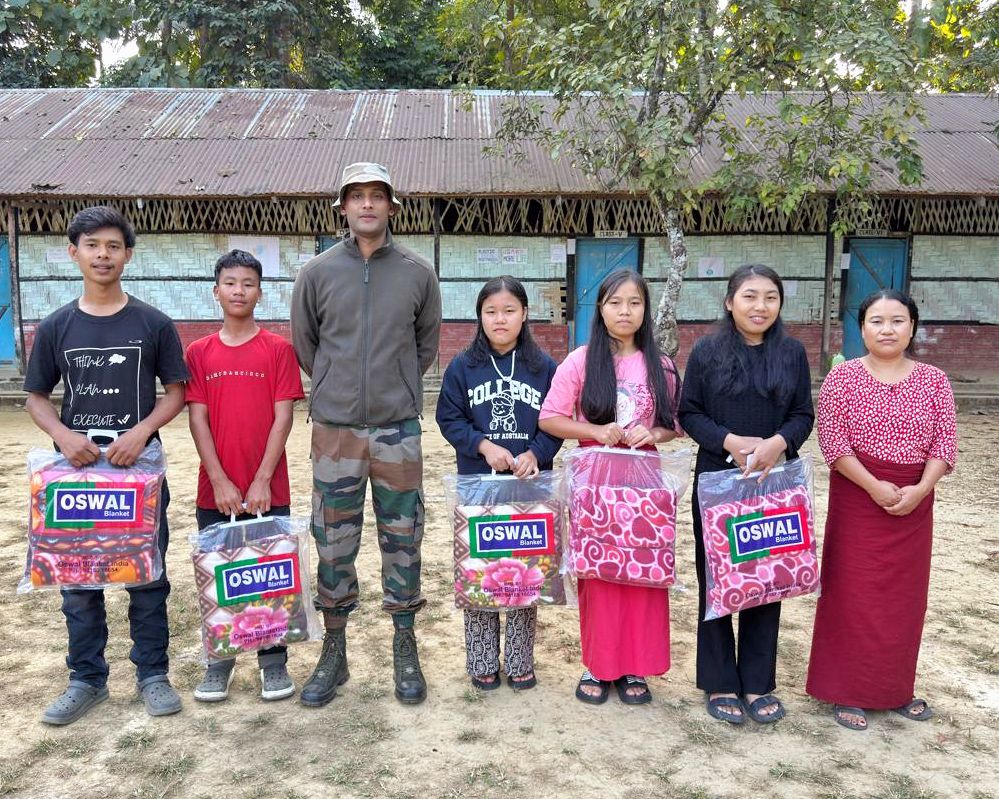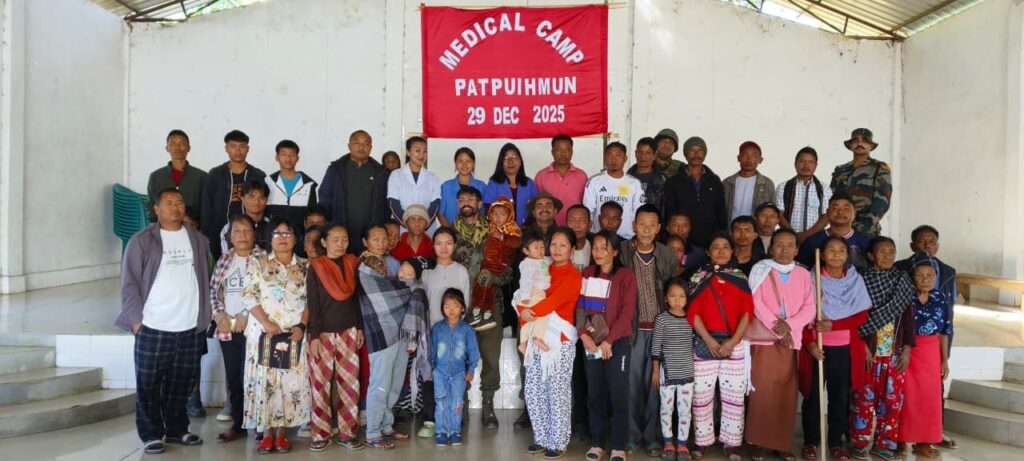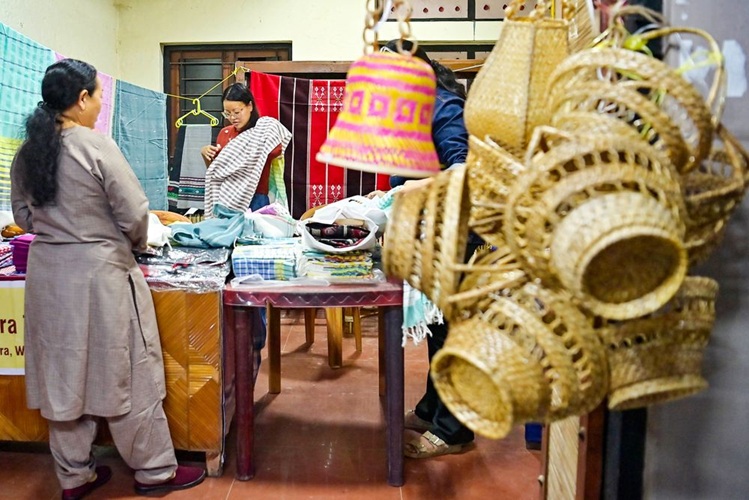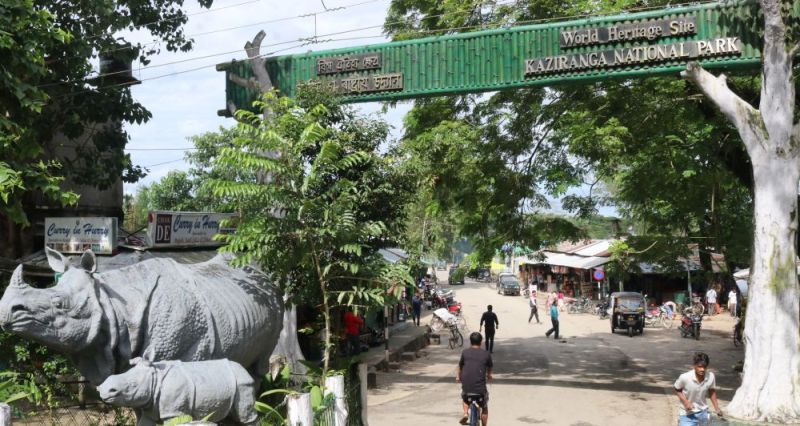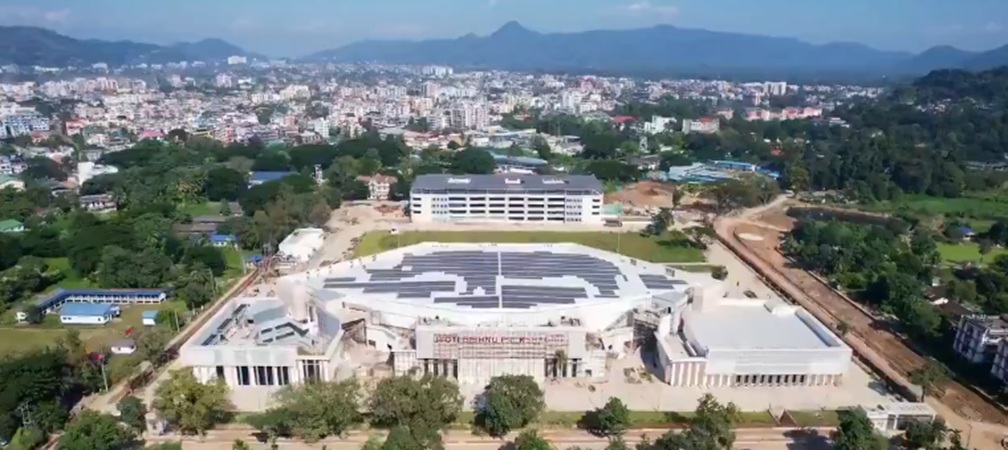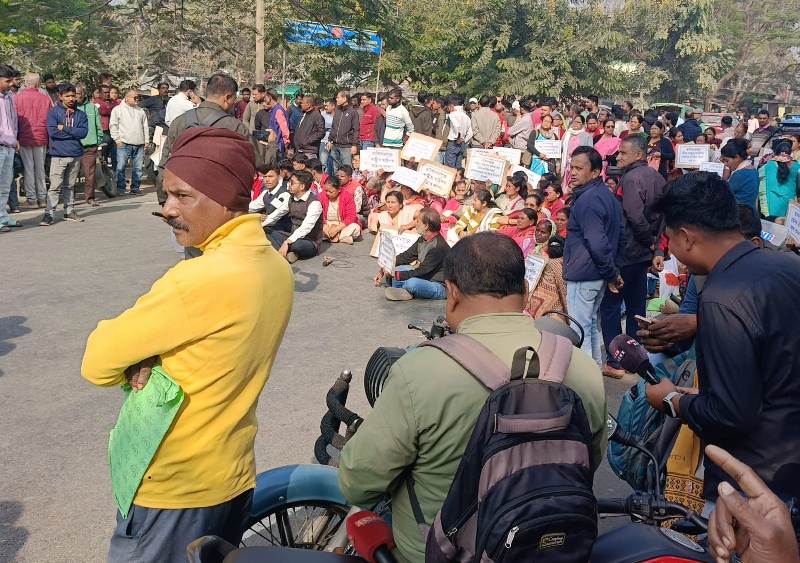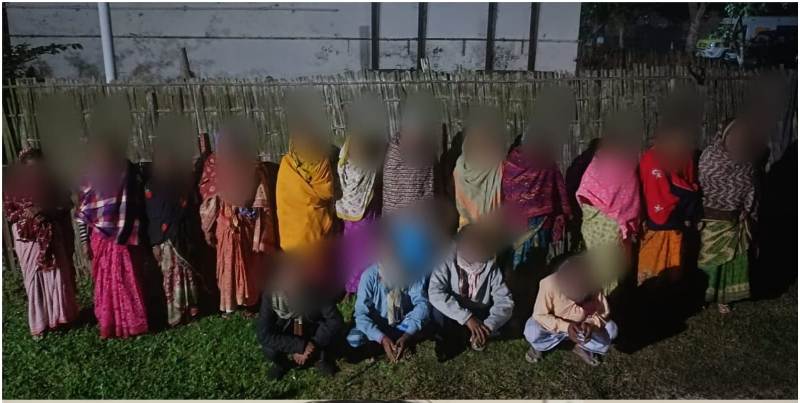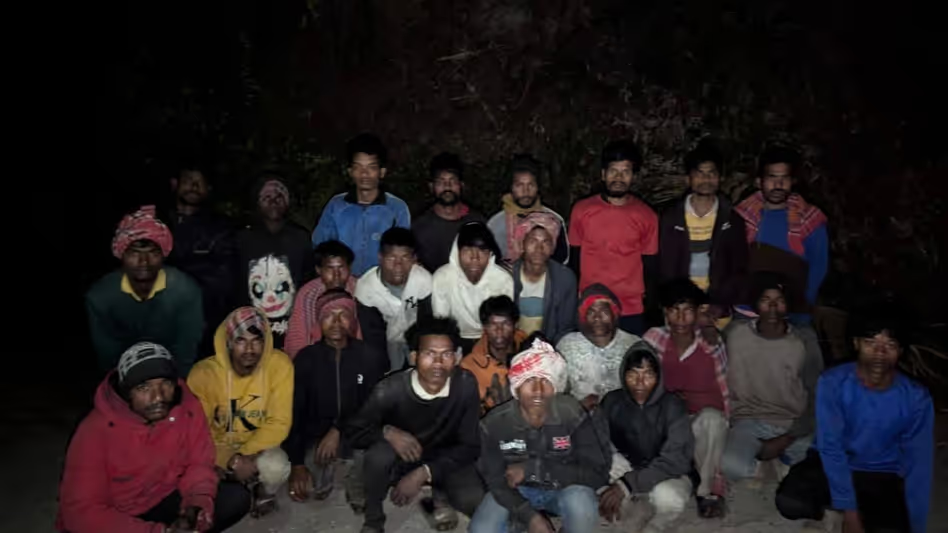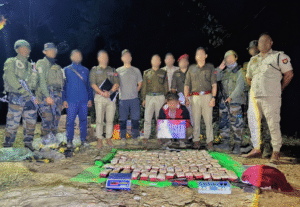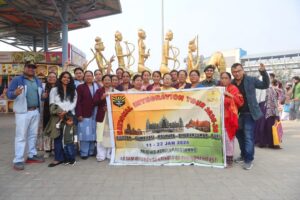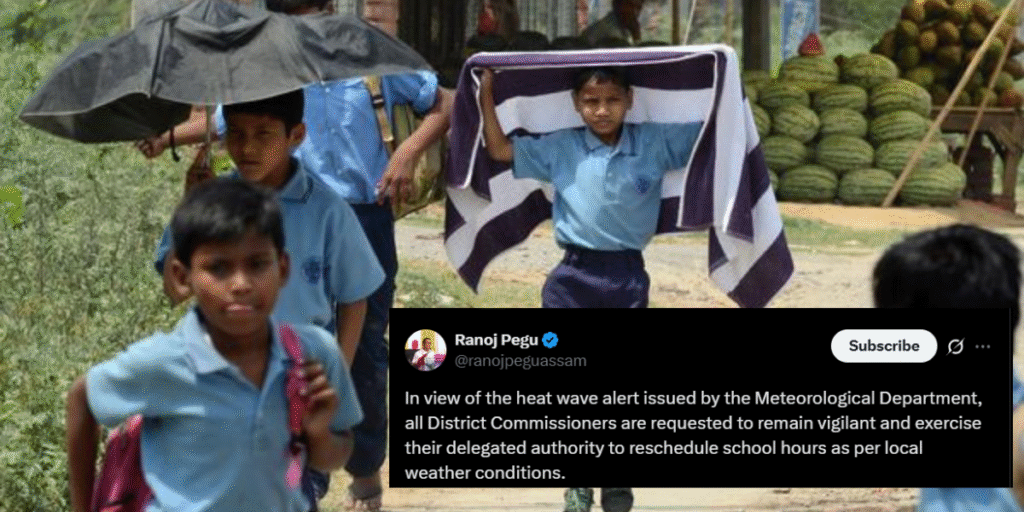
Assam’s Education Minister Urges Districts to Modify School Timings Amid Scorching Summer
Guwahati, June 10: As large swathes of the country reel under intense summer heat, Assam has taken a precautionary step to safeguard school children from potential heat-related risks. In a proactive measure, State Education Minister Dr. Ranoj Pegu has issued an advisory urging all District Commissioners (DCs) to assess local weather conditions and adjust school timings accordingly.
Although the India Meteorological Department (IMD) has not yet issued a formal heatwave alert for Assam, temperatures across the state have hovered between 35°C and 39°C—a range considered stressful, particularly for young students.
“In view of the heatwave alert issued by the Meteorological Department, all District Commissioners are requested to remain vigilant and exercise their delegated authority to reschedule school hours as per local weather conditions,” Dr. Pegu posted via his official X handle on June 10.
The Minister’s statement reflects a preventive approach, recognizing the growing intensity of summer across the Northeastern region. While states like Rajasthan, Madhya Pradesh, and parts of Punjab and Vidarbha have seen temperatures surge beyond 45°C, even states traditionally considered less vulnerable, like Assam, are witnessing extended heat periods.
According to the IMD bulletin released on June 9, the maximum temperatures peaked between 43°C and 47°C in West Rajasthan and adjoining areas, with similar extremes reported from East Rajasthan, parts of Madhya Pradesh, and isolated locations in Haryana, Punjab, and Vidarbha. Several other regions—including Uttar Pradesh, Telangana, Andhra Pradesh, Tamil Nadu, and Marathwada—recorded maximum temperatures in the 39°C to 43°C range.
While Assam remains outside the immediate danger zone, the Education Department’s swift response underlines the state’s commitment to student safety amid unpredictable climate conditions. District authorities have been empowered to take decisions autonomously, ensuring flexibility based on localized forecasts and thermal indexes.
This advisory follows a growing trend across Indian states, where education and civil administrations are being encouraged to adopt heat-mitigation strategies, including adjusted school timings, hydration protocols, and temporary mid-day breaks.
As summer deepens, more coordinated efforts may be introduced depending on the evolving meteorological patterns across the region.


